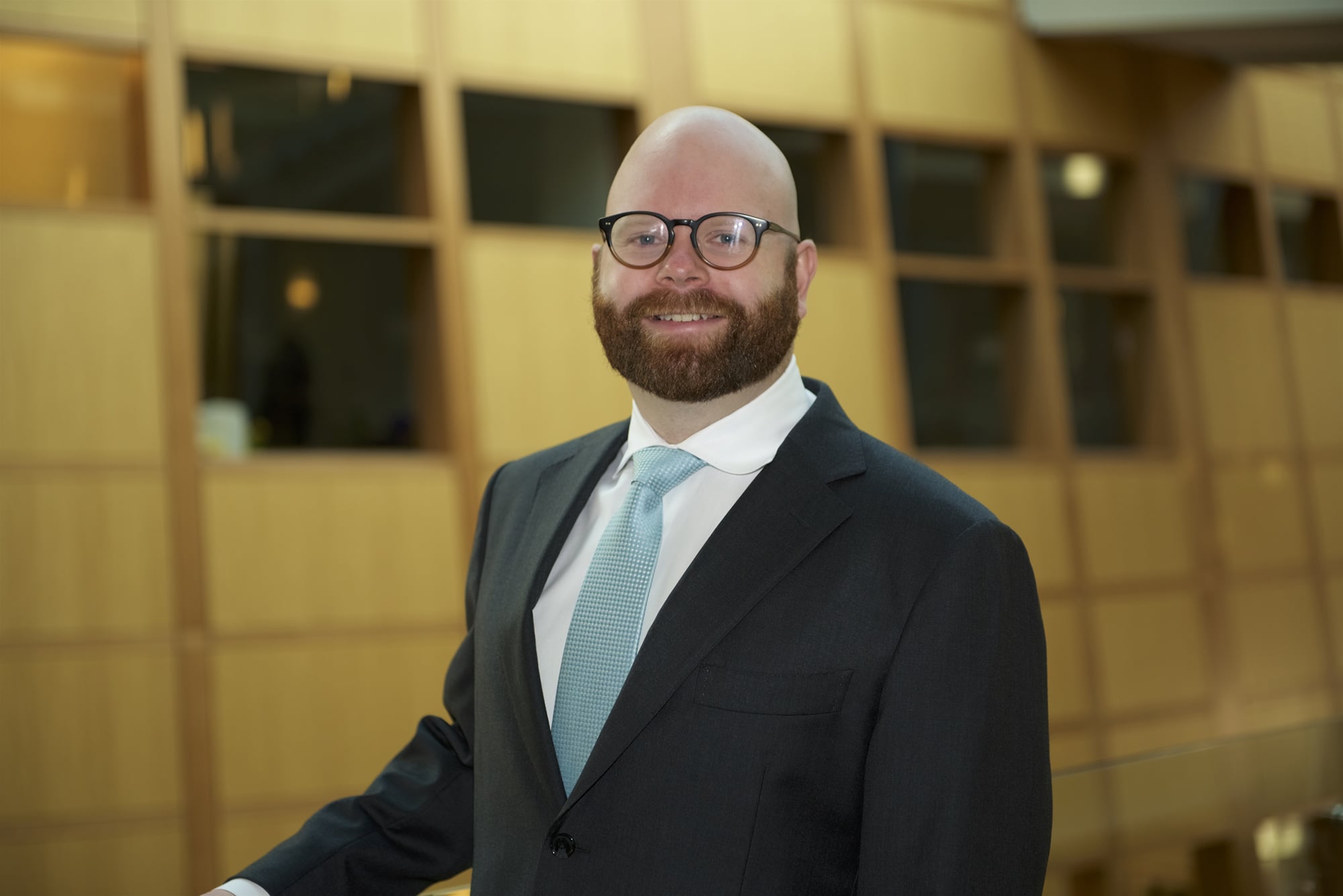Alumni Stories
Matthew Wood, MBA ‘19
A Peace Corps volunteer pivots to business
When I was in the Peace Corps in Nicaragua, I was a small business development volunteer. I did a lot of small business advising within my community, with microfinance groups, training women and working with artists to build business plans and get loans. I came to Georgetown to pivot into business skills that would achieve my goal of combining business and impact.
I’m excited about the intersection between business and impact, and how can you do that in all aspects of business. Business can accelerate and help scale up to bigger impact that nonprofits and government might not be able to do, filling in those cracks. I think about the key issues going on in society, that business can play a big role in, to improve and transform the quality of life. I came to Georgetown because the school’s mission emphasized this sort of space.
You hear a lot about Corporate Social Responsibility initiatives, a lot about foundations from bigger corporations, but I’m interested in moving beyond that. This is where businesses are starting to turn a corner and that is where Georgetown Business for Impact has its focus: the whole idea of shared value, of business as a force for good. It’s not just about going into corporate social responsibility, but about creating business models that provide social benefits as part of their core business platform.
The strategy behind doing good
The challenge of doing this work is to build a business case. You have to make it a win-win, a win for the business, a win for society. There are questions of short term profits versus long term sustainability practices, and that’s particularly hard for publicly traded companies.
Through the Global Business Experience, I did a pricing climate risk project. We tried to understand the magnitude of risk that would occur based on severe climate change. We went to Ghana and studied the real value chain of cacao and made recommendations, presented a methodology on how to think about pricing for cacao. There are a lot of mitigation practices to increase yields and make it less vulnerable to droughts, and climate change. It was super fascinating to be on the ground, working on the biggest buyers of cacao in the world. No one has an answer yet, it was really cutting edge stuff we were able to explore.
Learning from today’s strongest leaders
When you look at Georgetown as a whole, it’s a completely integrated experience with business and social impact. In addition to Business Impact, you also have the student organization stuff: Net Impact is almost a third of the student body, students who want to be educated on issues of social impact. And then you have the faculty as well.
With Business for Impact in particular, the access is a huge benefit. How else are you going to learn, but through professionals, about how they got to where they are? You get to understand what is going on in the industry from people who are making the industry.
Through Georgetown Business for Impact, I’ve met with leaders from Bank of America, Pepsi, Wal-Mart, Land O’Lakes, just to name a few. In the fall of 2017, the Chief Sustainability Officer for Walmart spoke to us about the challenges of improving on minimum wage, and how can they provide higher wages, with everything else in the business, how can they build that case for the business.
Transformational moments
For me it has been great to think about this career path, as I go forward. With the world as it is today, for most of us it’s not going to be a linear career path. We won’t all be in corporate social responsibility jobs. But no matter where we are, we can think about how do we define the jobs we want to do? How can we make a positive impact in this company? No matter where you’re working, you can still have an impact lens, you can think about how your decisions will affect the world at the end of the day.
Just before graduation I was grabbing a beer with a first year student, and he told me without the Social Impact Fund he wouldn’t be able to have an internship at the Nature Conservancy. That’s really powerful. During the time I’ve been here, we’ve increased the size of the Social Impact Fund six times over. And so many people have helped: students, faculty, the Deans. With increasing costs for graduate degrees and higher education in general, it’s important we provide people with opportunities to follow the career path they want to do even if it’s not financially lucrative.
Now that I’ve graduated, and I can look back with a 30,000 foot view, I’m proud of all the relationships that have been built at Georgetown. I am proud of how dedicated everyone is to this cause. At the end of the day, that’s what is really going to last: the relationships. I can talk about the events we put on, the money we raised, but it’s the community that really has made a difference: the other students, faculty, and the people who work at this Center. All of us together working towards a common goal.
Students are really willing to help other students out, and we’re working to build a pipeline of alumni who are going to be a force for good in the world.
Matthew Wood, McDonough ’19, was a Student Leader at Georgetown Business for Impact. He helped to build the Social Impact Fund, a program that allows McDonough candidates to spend their summer internships doing passion projects.


